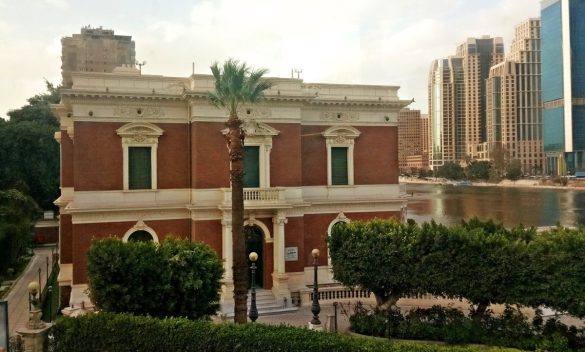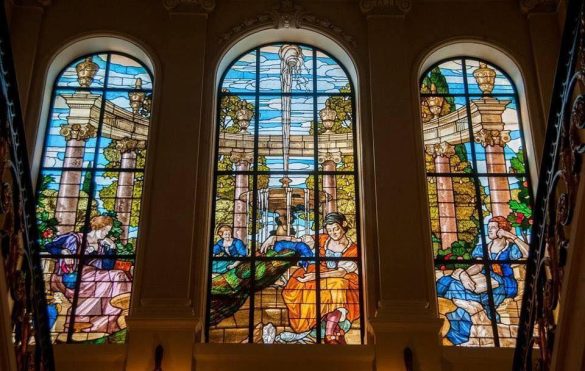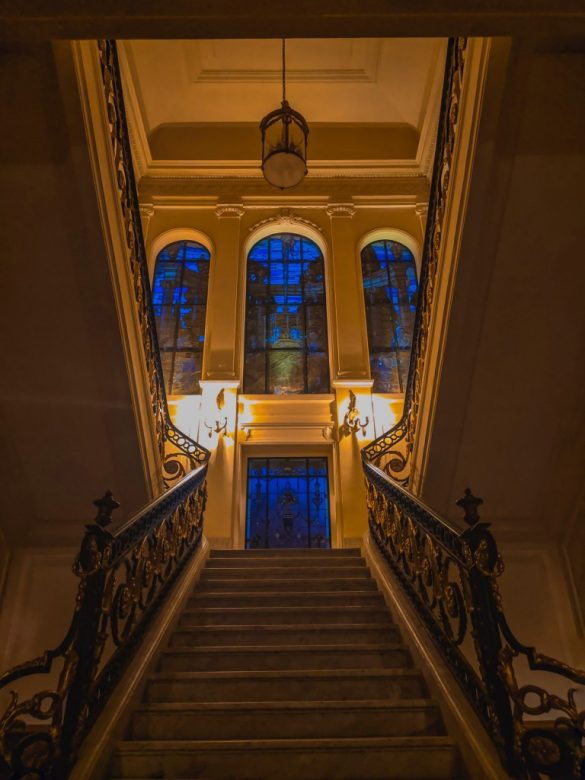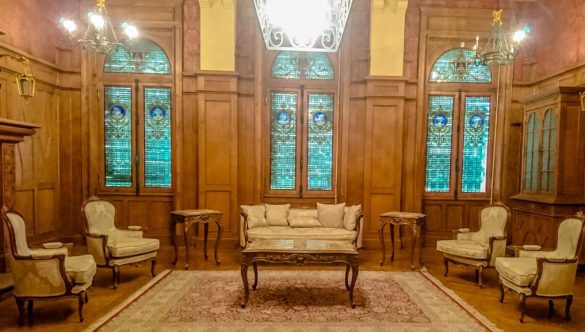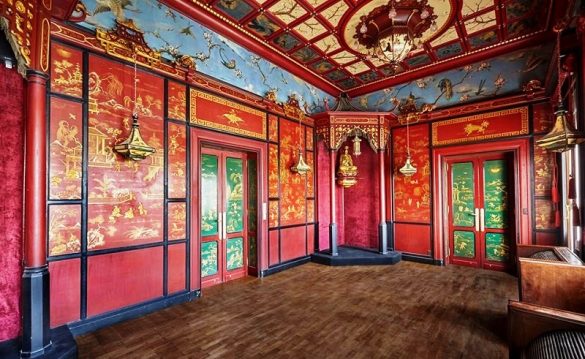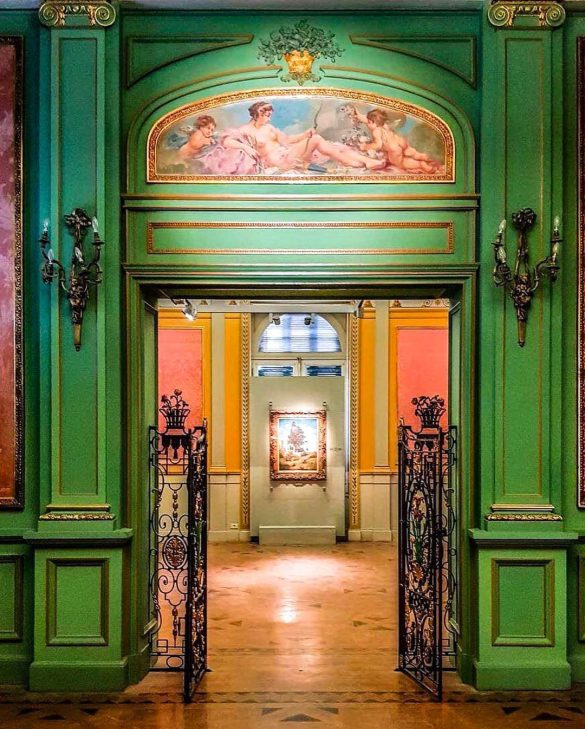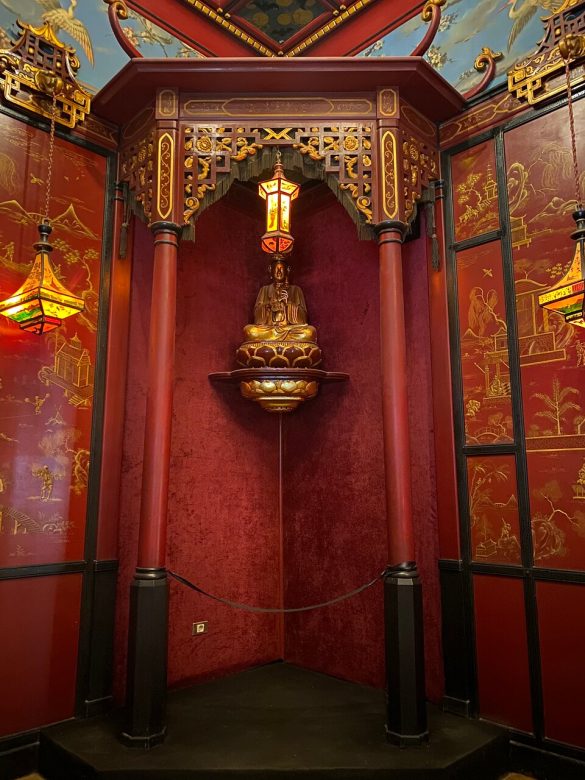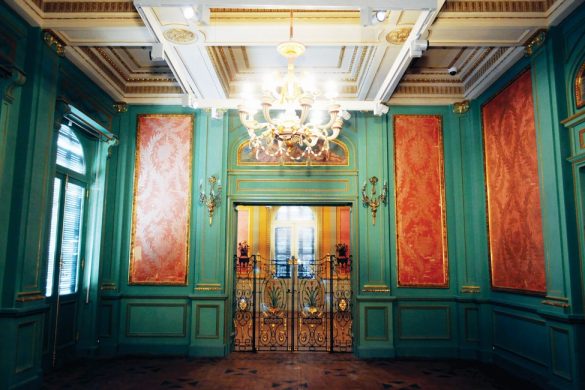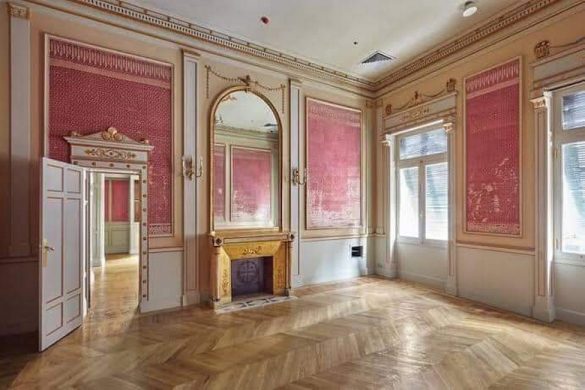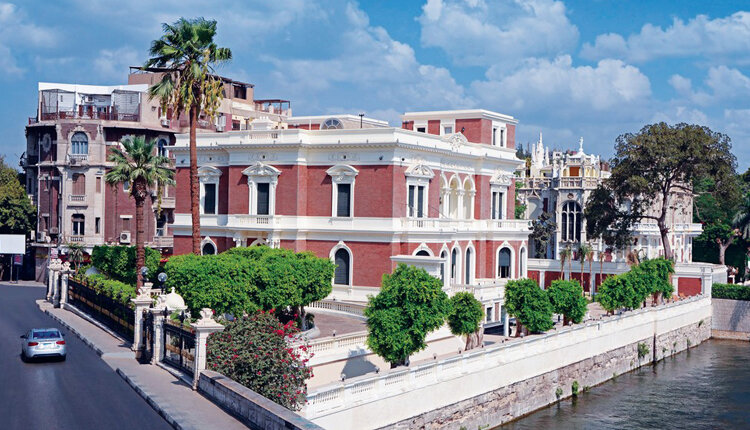Aisha Fahmy Palace is a two storey 2600m2 piece of art located in Zamalek on the shore of Cairo Nile.
Built in 1907 by Ali Fahmy Pasha, Aisha Fahmy’s brother, the palace was designed by Antonio Lachak, a famous Italian architect. The palace was built in a classical style decorated by the most expensive furniture from Europe.
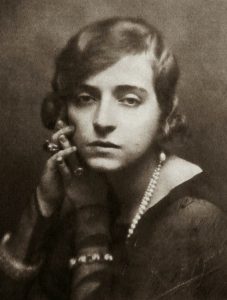
Princess Aisha Fahmy
Ali fell in love with French Marguerite Miller, their different perspectives and cultures led to a huge quarrel six months after their marriage. The quarrel broke during their trip to London in 1923, where Miller fired three bullets at him, killing him.
After his death, Aisha bought her siblings’ share in the palace EGP 72,000 on the sixth of May 1924, becoming Aisha Fahmy Palace.
Aisha married two times, her first husband was Ahmed Saeed, obstetrician and gynecologist, and her second husband was late actor Youssef Wehbe. Wehbe was inspired by his brother-in-law’s story to produce his 1932 movie “Awlad Al-Zawat”, Egypt’s first talking picture.
Aisha died in in the palace in 1962.
The palace consists of two floors, a roof, and a basement. The first floor consists of 6 rooms and a large hall in the middle with The Thinker statue in the middle.
The second floor contains rooms of special styles, such as Aisha’s room, the Japanese room, with Japanese words and pictures engraved on the wall. The room design was gifted to Aisha by the Japanese ambassador at the time when he visited her in the palace.
The palace is now a museum and is the Egyptian Complex of Arts, which hosts different art events and galleries.
